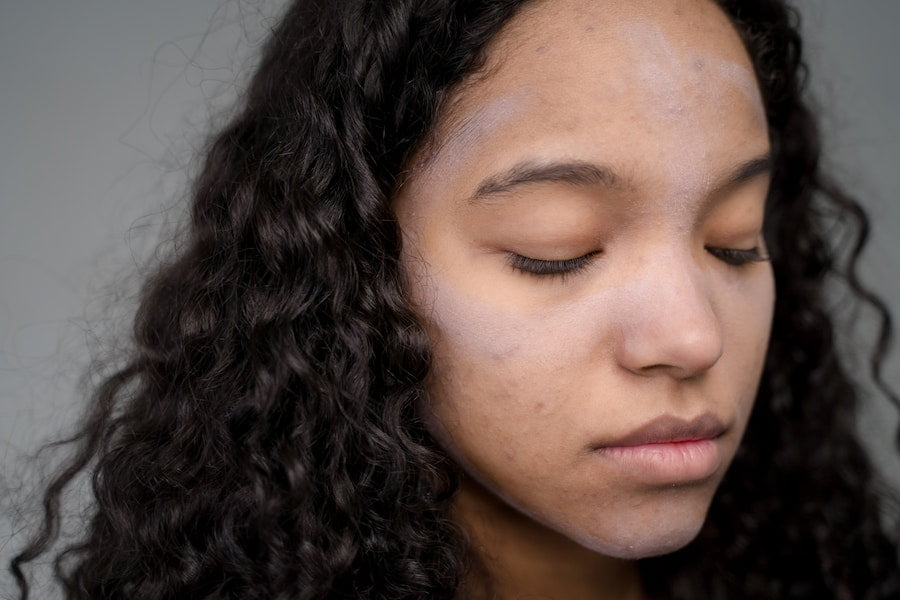As we age, our skin changes in many ways. The most noticeable changes are usually the visible ones: wrinkles, sagging skin, age spots, and dryness. But there are also changes happening below the surface.
One of the biggest ways our skin changes with age is that it becomes thinner. This is because the fatty tissues below the surface start to break down and diminish. This loss of fat makes our skin less plump and more prone to wrinkling.
The collagen and elastin fibers that give our skin its structure also start to degrade as we age. This leads to wrinkles, sagging skin, and a loss of elasticity. The loss of these supportive fibers also makes our skin more fragile and susceptible to injury.
Finally, the production of oil by our sebaceous glands slows down as we age.
The effects of aging on your skin

As we age, our skin changes in many ways. The most noticeable changes are usually wrinkles and fine lines, which form as a result of sun damage, smoking, and poor diet. However, there are many other ways that aging affects our skin. For example, our skin becomes thinner and less elastic.
This makes it more susceptible to injury and slower to heal. We also lose fat under our skin, which can make us look gaunt and tired. And finally, the production of oil and sweat decreases, which can lead to dryness, itching, and flaking. While these changes may seem like they’re all negative, there are some positive aspects to aging skin as well. For one thing, wrinkles can give us a distinguished look that conveys wisdom and experience.
The causes of aging on your skin
As we age, our skin changes in many ways. These changes are the result of a combination of factors, including sun exposure, smoking, poor nutrition, and genetics. One of the most noticeable changes is a decrease in the production of collagen and elastin, which are proteins that give our skin its elasticity and strength. This decrease leads to wrinkles, sagging skin, and a loss of firmness.
Another cause of aging skin is a decrease in the number of oil-producing glands in the skin. This can lead to dryness, itching, and a loss of radiance. Finally, the cells in our skin become less efficient at repairing themselves as we age. This means that wounds take longer to heal and blemishes are more likely to leave scars.
The best ways to prevent aging on your skin
As we age, our skin changes. Fine lines and wrinkles appear, and skin becomes less elastic. There are many ways to prevent these changes, or at least slow them down. One of the best ways to prevent aging on your skin is to protect it from the sun. Ultraviolet rays can damage skin cells, causing premature aging. Wear sunscreen every day, even if you’re just going for a walk or running errands.
Another way to prevent aging on your skin is to eat a healthy diet and drink plenty of water. Eating foods that are high in antioxidants can help protect your skin from damage. Drinking eight glasses of water a day will keep your skin hydrated and help it look its best. Finally, don’t smoke.
The best ways to treat aging on your skin
As we age, our skin changes. These changes are a natural part of the aging process. But there are things we can do to help keep our skin looking its best. Here are some tips for keeping your skin healthy as you age:
1. Use sunscreen regularly. This will help protect your skin from damage caused by the sun’s rays.
2. Moisturize your skin daily. This will help keep it hydrated and prevent dryness.
3. Exfoliate your skin weekly. This will help remove dead skin cells and improve circulation.
4. Eat a healthy diet and drink plenty of water. This will help nourish your skin from the inside out.
How your skin changes with age, and what you can do about it
As we age, our skin changes in a number of ways. The most noticeable changes are usually the result of sun damage, which can cause wrinkles, sagging skin, and age spots. There are other changes that can occur as well, such as thinning skin and decreased elasticity.
Fortunately, there are things you can do to help slow down the aging process and keep your skin looking its best. A good skincare routine that includes cleansing, exfoliating, and moisturizing will go a long way toward keeping your skin healthy and youthful-looking.
Additionally, using products with ingredients like retinol and vitamin C can help to improve the appearance of wrinkles and other signs of aging. Finally, be sure to protect your skin from the sun by wearing sunscreen every day.
As we age, our skin changes in a number of ways. First, the fatty tissues below the skin decrease, and skin becomes thinner. This makes bruises happen more easily. Second, sweat glands become less active, so we might not sweat as much when we exercise or are in a hot environment. Third, sebaceous glands also become less active, which can lead to drier skin.
Finally, blood vessels become less elastic and more fragile, which can lead to spider veins and varicose veins. All of these changes are natural part of aging. However, there are things you can do to help keep your skin healthy as you age. For example, you can use moisturizers to help with dryness and wrinkles. You can also use sunblock to help prevent damage from the sun’s ultraviolet rays.